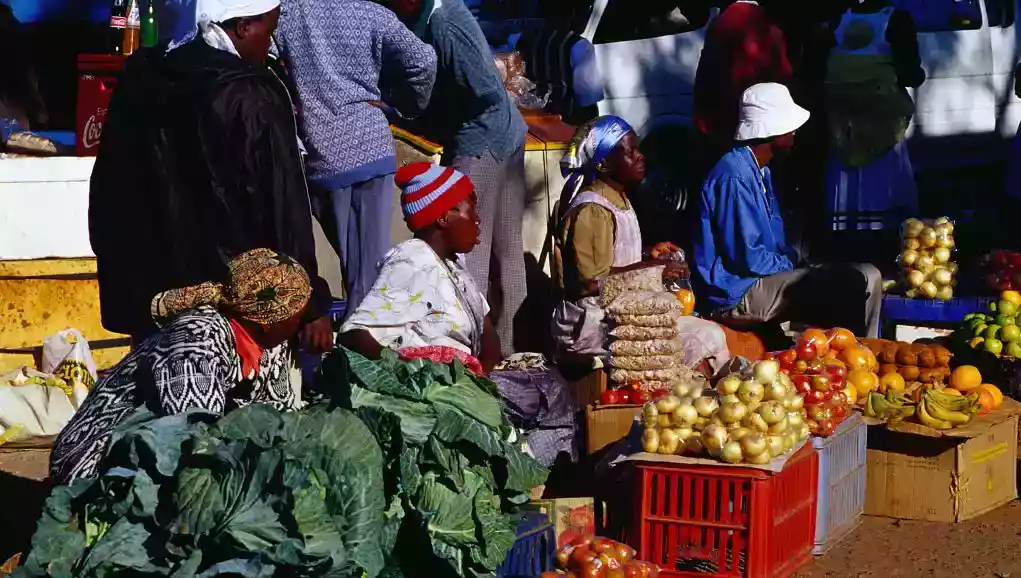
WALK through any bustling street in Harare or any Zimbabwean city and you’ll see it: the vibrant hum of informal businesses — hair salons, food vendors, taxi drivers, clothing stalls, and more.
These are not just side hustles or temporary gigs. For many Zimbabweans they are the backbone of survival.
Yet, when it comes to taxation, the informal sector is often treated with suspicion, pressure and punitive measures.
A recent study makes it clear that policymakers need to use more carrots than sticks when engaging with informal traders.
The informal economy: big, busy, and misunderstood
Zimbabwe’s informal sector is massive.
It contributes nearly two-thirds of the country’s economic output and four-fifths of employment.
That’s more than most low- and middle-income countries.
- Mbavara eyes to resurrect Matavire’s music legacy
- Zim exiles panic over SA permits
- Zim exiles panic over SA permits
- Social media platforms should act on hate speech
Keep Reading
But despite its size, the sector remains poorly understood, especially when it comes to taxation.
The dominant narrative is that the sector is lucrative and dodging taxes, often leading to hit and miss top-down policies.
The study, based on a 2024 survey of 2 490 informal operators in Harare and Masvingo, dives deep into the realities of earnings, taxes, fees and the hidden costs of doing business informally.
It also includes 64 in-depth interviews, 18 focus group discussions and 29 key informant interviews with tax authorities and informal sector leaders.
The result? A rich, nuanced picture of a sector that’s more vulnerable than villainous.
Who’s really earning enough to be taxed?
Only one in five (20% of the sample) informal business operators earns enough to rise above the poverty line.
In the sampled businesses, these are mostly transport providers—taxi and minibus drivers — who dominate the top earnings bracket.
The remaining 80% falls below the poverty line, meaning their businesses are more about survival than profit.
This finding challenges the assumption that informal traders are dodging taxes out of greed.
In reality, most simply don’t earn enough to be taxed fairly.
Yet, they still face a barrage of fees, permits, and — most troubling — bribes.
The hidden tax burden: fees, licences and bribes
While only 6% of traders pay formal taxes (mostly presumptive and import taxes), nearly all face a complex web of user fees, licences and permits.
These payments act as a de facto tax system — one that’s highly regressive and disproportionately affects women, who are concentrated in low-income, easy-entry sectors like food and clothing.
In Harare, for example, a hair salon needs three separate licences — for hair, makeup and nails.
That’s a lot of paperwork and money for a small business.
And when traders can’t keep up with these demands, they often resort to bribes.
These informal payments are pocketed by street-level officials and have become a default tax, undermining trust in government and draining public revenue.
Gender matters: Women bear the brunt
The study reveals a stark gender income gap.
Women earn less than men in both cities and are more likely to be in sectors with low entry barriers and low returns.
Yet, paradoxically, women are also more tax compliant and less likely to pay bribes.
This double burden — lower earnings and higher compliance — calls for gender-responsive taxation.
That could mean tax credits, lower thresholds or simplified regimes for sectors with high female ownership.
Without such measures, the current system risks deepening inequality in the informal sector.
City dynamics matter too
Another key insight is the city-level difference in payments.
Traders in Masvingo pay significantly less than those in Harare (capital city), both in absolute and relative terms.
This suggests that local dynamics matter and that a one-size-fits-all approach to informal taxation is flawed.
Policymakers need to address capital/big city bias and design local tax regimes that reflect the realities of smaller cities.
That means understanding local earning profiles, cost structures, and compliance challenges.
Fortunately, the study reveals that the big/capital city is likely to be the worst-case scenario, justifying its prioritisation.
What needs to change?
The study doesn’t just diagnose the problem — it offers a roadmap for reform. Here are some of the standout recommendations:
Simplify tax regimes without overburdening the poor
Simplified tax regimes (STRs) are popular (eg flat rates such as US$20 per business per quarter), but they can be blunt instruments.
Without careful targeting, they risk taxing the poor more than the rich.
The informal economy is large, but pockets of taxable income are few. Tax systems should reflect that.
Streamline licences and permits
Basic businesses shouldn’t need a stack of licences to operate.
Reducing the number of required permits — and allowing phased payments instead of lump sums —can ease compliance and reduce corruption.
Fortunately, the government of Zimbabwe has already started reviewing the cost of doing business, with the Finance minister highlighting in the August mid-term budget speech that some businesses “have to be informal to be profitable” due to the cost of doing business formally.
Educate traders
Many informal operators only learn about regulations after they’re arrested.
That’s not just unfair — it’s counterproductive.
Education campaigns, especially those tailored to literacy and digital skill gaps, can empower traders and improve compliance.
Increase transparency
To tackle corruption, some traders suggest visible identification for city officials — like yellow vests with name tags.
This could help to prevent impersonation and reduce bribe demands.
Adopt a service-first approach
Informal traders feel excluded from public services.
They pay multiple fees and bribes but get little in return.
This erodes tax morale and weakens the fiscal contract between citizens and the State.
A quid pro quo approach — where payments are linked to visible services — could rebuild trust.
Many informal traders voice the need for amenities such as toilets, but their top priority is basic healthcare which is not surprising because most are one sickness away from starving.
More carrots, fewer sticks
The informal sector is not novel; it is the norm in emerging economies.
Zimbabwe’s informal sector doesn’t need more crackdowns or complex tax codes. It needs incentives, support, fairness and inclusion.
The biggest question for policy is not how to police traders better/ban them, but how to make formalisation, registration etc the preferred approach while recognising the sector’s role in livelihoods and building a tax system that’s responsive rather than repressive.
Instead of chasing pennies from struggling traders, the government could focus on helping these businesses to grow.
That way, they’ll eventually earn enough to be taxed — and be willing to pay.
It’s a long game, but one that promises more carrots than sticks, and ultimately, a stronger, fairer economy.
Final thoughts
This study makes it clear that informal traders are not freeloaders.
The reality is far more complex — and far more human.
These are people trying to make ends meet in a tough economy, often with little support and lots of obstacles.
No graduate wants to sell dirty second-hand clothes from Europe.
It is their second or even third best option when job creation is stagnant and when there is an increasing casualisation of formal jobs.
Taxing the informal sector isn’t just about revenue.
It’s about justice, inclusion and trust.
And that starts with understanding who these traders are, what they earn, the challenges they face and what they need.
Zimbabwean policymakers should not see the informal sector as a mere tax headache, but an emerging sector that still requires nurturing rather than policing.
Wider discussions are also necessary on urban geography, zoning and vehicle and human traffic safety.
In a struggling economy, is the right to access urban commons for livelihood exclusive to only those holding formal jobs?
The article was originally published by the International Centre for Tax and Development.
- Abel Gwaindepi is a senior researcher at the Danish Institute of International Studies-DIIS and at the Lund University’s Department of Economic History. Hellen Venganai is the director for the Gender and Diversity Centre, Women’s University in Africa, Zimbabwe.










